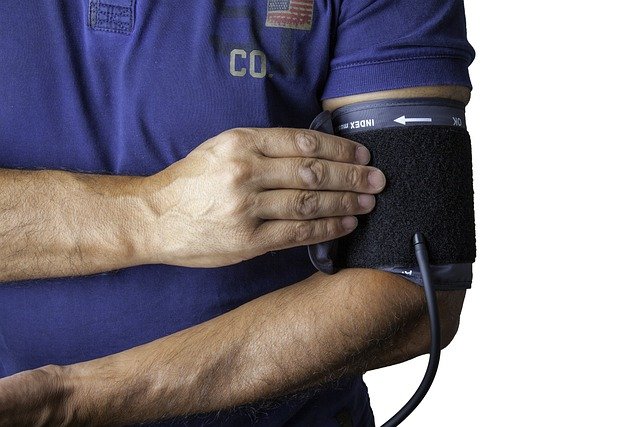CNA to LPN Bridge Program: A Pathway to Advanced Nursing Roles
Many Certified Nursing Assistants (CNAs) explore Licensed Practical Nurse (LPN) programs as a way to advance their healthcare careers. CNA to LPN bridge programs offer a structured path with flexible formats and clinical experience opportunities. Learn how this progression works. Discover more in this article.

What is a CNA to LPN bridge program?
A CNA to LPN bridge program is a specialized educational pathway designed for Certified Nursing Assistants who wish to become Licensed Practical Nurses. These programs take into account the experience and knowledge CNAs already possess, allowing them to complete their LPN training in a shorter time frame compared to traditional LPN programs. Bridge programs typically focus on expanding clinical skills, deepening medical knowledge, and preparing students for the increased responsibilities of an LPN role.
How long does it take to complete a CNA to LPN bridge program?
The duration of CNA to LPN bridge programs can vary depending on the institution and whether students choose full-time or part-time study. On average, these programs can be completed in 9 to 18 months. Full-time programs may be as short as 9 to 12 months, while part-time options can extend to 18 months or more. This accelerated timeline is significantly shorter than the typical 12 to 24 months required for traditional LPN programs, making it an attractive option for working CNAs looking to advance their careers.
What are the admission requirements for LPN programs for CNAs?
Admission requirements for CNA to LPN bridge programs may vary by institution, but common prerequisites include:
-
Current CNA certification
-
Minimum work experience as a CNA (often 1-2 years)
-
High school diploma or GED
-
Completion of prerequisite courses (e.g., anatomy, physiology, microbiology)
-
Minimum GPA requirement (typically 2.5 or higher)
-
Passing score on entrance exams (e.g., TEAS, HESI)
-
Current CPR certification
-
Background check and drug screening
It’s essential to check with specific programs for their exact requirements, as they may have additional criteria or variations on these standard prerequisites.
What does the curriculum of a CNA to LPN bridge program include?
CNA to LPN bridge programs build upon the foundational knowledge and skills that CNAs already possess. The curriculum typically includes:
-
Advanced anatomy and physiology
-
Pharmacology and medication administration
-
Medical-surgical nursing
-
Pediatric nursing
-
Maternal and newborn care
-
Mental health nursing
-
Geriatric nursing
-
Leadership and management in nursing
-
Legal and ethical issues in healthcare
-
Advanced clinical skills training
These programs often combine classroom instruction with laboratory practice and clinical rotations to provide a comprehensive learning experience. Students will gain hands-on experience in various healthcare settings, preparing them for the increased responsibilities of an LPN role.
What are the career advancement opportunities after completing an LPN program?
Completing a CNA to LPN bridge program opens up numerous career advancement opportunities in the healthcare field. LPNs can work in a variety of settings, including:
-
Hospitals
-
Long-term care facilities
-
Rehabilitation centers
-
Home health agencies
-
Physician’s offices
-
Outpatient clinics
-
Schools
-
Correctional facilities
LPNs typically have more responsibilities and autonomy compared to CNAs, including administering medications, performing wound care, and monitoring patient conditions. This increased scope of practice often leads to higher salaries and more diverse job opportunities. Additionally, becoming an LPN can serve as a stepping stone for further education, such as pursuing a Registered Nurse (RN) degree through LPN to RN bridge programs.
What are the costs associated with CNA to LPN bridge programs?
The cost of CNA to LPN bridge programs can vary significantly depending on the institution, location, and program format. Here’s a general overview of potential costs:
| Expense Category | Estimated Cost Range |
|---|---|
| Tuition and Fees | $5,000 - $25,000 |
| Textbooks and Supplies | $500 - $2,000 |
| Uniforms and Equipment | $100 - $300 |
| NCLEX-PN Exam Fee | $200 - $300 |
| State Licensing Fee | $50 - $200 |
Prices, rates, or cost estimates mentioned in this article are based on the latest available information but may change over time. Independent research is advised before making financial decisions.
It’s important to note that many institutions offer financial aid options, scholarships, or payment plans to help offset the costs of education. Some employers may also offer tuition reimbursement programs for CNAs pursuing LPN certification. Researching and comparing different programs can help prospective students find the most cost-effective option that meets their needs.
In conclusion, CNA to LPN bridge programs offer an excellent pathway for nursing career advancement. These programs provide a structured and efficient route for CNAs to enhance their skills, increase their earning potential, and expand their career opportunities in the healthcare field. By leveraging their existing experience and knowledge, CNAs can transition to the role of LPN more quickly than through traditional programs, opening doors to a wider range of nursing responsibilities and specializations.




